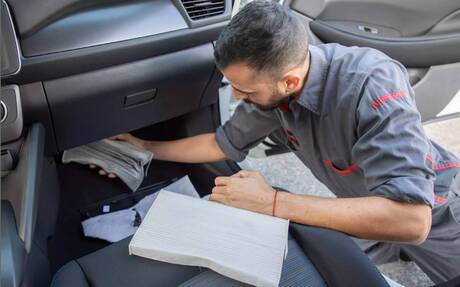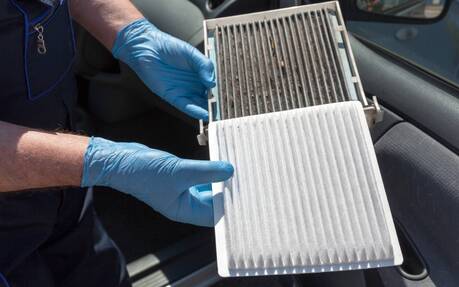The Cabin Air Filter is Your Car’s Antivirus
As the whole world fights against the COVID-19 pandemic a.k.a. the coronavirus, the importance of air quality and disease control is on everyone’s mind.
Once again, there’s an analogy to be made between humans and automobiles.
Surely you know that a vehicle uses several filters to deliver optimum performance and stay in good shape. The engine oil and transmission oil filters as well as the engine air filter are the most widely known and the first that people think about when the topic of maintenance enters the conversation. However, you should not overlook the cabin air filter.
Sometimes called pollen filter, it is relatively new to automobiles, having become mainstream in the early 2000s. It allows the driver and passenger to breathe clean air by filtering dust, pollen, contaminants and whatnot coming from the outside.
Essentially, when you turn on the fan, the system will suck air around the vehicle and the filter’s job is to capture those undesirable particles that would otherwise spread throughout the cabin.
For the wellbeing and good health of everyone inside the vehicle, it’s important to have the cabin filter checked (ideally at every oil change) and replaced if necessary at the intervals recommended by your vehicle manufacturer. A replacement typically costs between $30 and $60.

This cabin filter—again, not to be confused with the engine air filter—is generally found under the hood at the base of the windshield or inside the cabin. On some vehicles, the windshield wipers and their guard must be removed to get at the filter. Other cars feature a special access door under the dashboard, making it easy to remove the filter and put in a new one.
Warning: as with many other vehicle components, your driving habits and the road conditions have a big influence on the performance and longevity of the filter. There are two particular situations that require closer monitoring:
- If you use your vehicle mostly in dense traffic; and
- If you drive often on dusty roads.
In fact, when driving on a dusty road, it’s a good idea to select the “air recirculation” option on your vehicle’s HVAC controls. This way, you’ll avoid needlessly dirtying the cabin air filter.
Note that a clogged air filter can produce bad smells inside the car. If your nose detects something suspicious, you might want to replace it.
COVID-19 or not, there will always be dust and pollen in the air, even more so this spring, so be smart and check your cabin air filter!
